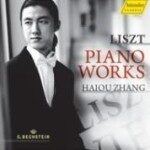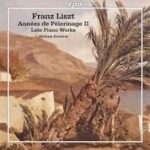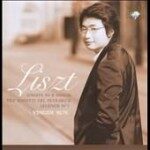

Lise de la Salle’s highly accomplished virtuosity and innate sense of drama easily lend themselves to Franz Liszt’s wide-ranging piano idiom. The opening Dante Sonata

Louis Lortie’s survey of the complete Années de Pèlerinage adds up to his finest Liszt playing on disc. The interpretations abound with new-found reserves of

How happy pianist Elizabeth Herbin looks on the front and back covers, with a little bird perched on her finger. Her Schubert playing, however, doesn’t

Record collectors may have encountered Martin Berkofsky via his two 1970s recordings of Max Bruch’s previously lost Concerto for Two Pianos and Orchestra, although much

With the certainty of offending fans of Liszt’s choral music, I have to say that his sacred works have not aged well. Observers, both contemporaries

Liszt’s Fantasy and Fugue on the Chorale “Ad nos, ad salutarem undam” from Meyerbeer’s Le Prophete is one of the Romantic organ repertoire’s pillars, yet

Haiou Zhang plays Liszt with sympathy, affection, and technique to burn. Although Liszt allowed his interpreters textual leeway, the composer also took lots of trouble

Michael Korstick may not be a colorist or poetic aristocrat on the level of other pianists who’ve recorded the second book of Liszt’s Années de

Ugh! So slow! were Vladimir Horowitz’s reactions to Claudio Arrau’s measured, ruminative Beethoven selections featured here. Once you accept the Chilean pianist’s unhurried, Furtwänglerian aesthetic,

Yingdi Sun’s Liszt Sonata interpretation is a collection of sensitive moments and miscalculations. The pianist frequently lessens the impact of climaxes in the following ways:
![]()
